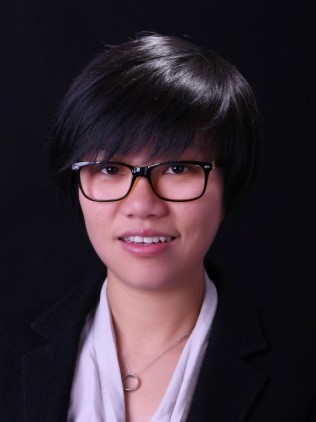
Chen Fang is a professor and doctoral supervisor at the School of Chemistry and Chemical Engineering, Northwestern Polytechnical University, and a former visiting scholar at Pennsylvania State University, USA. She also serves as the lead lecturer for the module Elastomer Materials at QMES. Currently, she holds the position of standing member of the Council of the Ultrasonic Materials Science and Technology Branch under the Chinese Materials Research Society (C-MRS). Her research focuses on the modulation and preparation of key materials for energy conversion devices and intelligent sensors, as well as the green synthesis of organic-inorganic functional materials. In total, she has led 3 projects funded by the National Natural Science Foundation of China (NSFC) and 5 provincial or ministerial-level natural science foundation projects. Additionally, she has participated as a key member in 1 major national-level project, 1 international cooperation project, and 2 national defense technology foundation projects. In recent years, she has published over 30 academic papers in leading journals in the fields of materials science and chemistry, including Small, Ultrasonics Sonochemistry, and Journal of Membrane Science. She has also been granted 13 national invention patents and won 1 Shaanxi Provincial Technological Invention Award (as the 4th contributor). On multiple occasions, she has been invited to deliver lectures at important domestic and international academic conferences.
One Module that Embodies the Mission of Chinese-Foreign Cooperative Education
Elastomer Materials is a key core module for the Polymer Materials Science and Engineering programme. Since its establishment in 2017, it has been jointly developed by Professor Kong Jie, the NPU module convenor and then Dean of QMES, and Professor James Busfield, Vice Dean of the School of Engineering and Materials Science at QMUL. Through this collaboration, a distinctive teaching system has gradually taken shape. Professor Chen Fang explained that the module is not only rooted in the national development needs for advanced elastomer materials but also closely aligned with the international frontier of science and technology. Designed from an engineering application perspective, the module revolves around the four elements of materials science and engineering, integrating knowledge acquisition, competence development, and value orientation in an organic manner.
In classes, students adopt a case-based learning approach, experiencing the entire process from product design and process optimisation to quality inspection. This enables them to develop advanced problem-solving skills and independent research capabilities for tackling real-world engineering challenges. Delivered entirely in English, the module not only enhances students’ academic communication and professional competence but also strengthens their global competitiveness within a cross-cultural learning environment.
Innovation in Teaching: Integrating Digital Competence with Research Literacy
Through the joint efforts of the teaching team, the module Elastomer Materials has continuously introduced new concepts. In recent years, the team has sought to organically integrate the cultivation of digital literacy, critical thinking, and research literacy into the module. For instance, in the explorations led by Tian Nan, a semi-open exploratory experiment project titled “Large Models-Aided Design for Visualisation of Polymer Chain Conformations” was developed. Working in groups, students go through a complete research-style training process—from studying classic English academic literature to conducting digital technology modelling and visualisation.
This process has not only developed students’ skills in information retrieval, data analysis, and programming, but more importantly, fostered their sense of scepticism, habit of argumentation, and teamwork spirit. In such classrooms, digital technology empowerment, real problem-driven learning, and interdisciplinary collaboration are integrated as one, fully embodying the integration and innovation of Chinese-foreign cooperative education in curriculum-based talent development.
Research Nourishes Teaching: Bringing Cutting-Edge Science to the Classroom
As a scholar actively engaged in forefront scientific research, Professor Chen Fang focuses on energy conversion devices, intelligent sensors, and organic-inorganic functional materials. She has brought this research expertise into the classroom, developed a comprehensive case-based learning repository, and guided students to deduce the underlying principles of material properties through the analysis of experimental phenomena and testing data.
Within the module, she has designed cases such as elastomeric materials for solid rocket engines and the structural design of flexible adaptive sensors—cases that not only stimulate students’ interest in learning but also help them recognise the close connection between materials science, national key needs, and the frontiers of scientific and technological development. Additionally, she integrates the history of aerospace materials development and stories from NPU’s own research practices into her teaching, allowing the principles of values-based education to be brought to life naturally and vividly in her English-medium classroom.
International Experience: Building Cross-Cultural Understanding and Educational Confidence
Having visited Pennsylvania State University as a scholar and spoken at numerous international academic conferences, Professor Chen Fang has realised the value of openness and inclusiveness. “Language proficiency is not the only takeaway,” she reflected. “What matters more is learning to understand diverse cultures and to respond to the needs of different students through varied educational practices.”
Over the past six years of teaching at QMES, she has worked closely with more than 700 students. Through continuous classroom observation and cross-cultural engagement, she has developed a set of teaching strategies tailored to diverse learning pathways, enabling students to grow in self-expression, intercultural communication, and academic inquiry. This international experience and cross-cultural insight have also equipped her to teach Chinese-foreign collaborative modules with confidence and ease.
Message to Students
Looking ahead, Professor Chen Fang hopes that students will make full use of the Chinese-foreign cooperative education platform to broaden their international horizons and gain an understanding of diverse cultures, while also developing a rigorous scientific spirit and solid engineering competence. She encourages students to maintain their curiosity, dare to explore and take on challenges, and integrate their personal growth with national development. She hopes they will, through learning in a cross-cultural environment, grow into innovative talents who embody a profound commitment to their nation and a strong sense of global responsibility.
Professor Chen Fang’s classes not only convey the latest research findings but also reflect her care and expectations for students’ growth. As a member of the teaching faculty at QMES, she has exemplified a student-centred approach through her professionalism and enthusiasm. Her dedication has not only advanced curriculum development but also brought fresh momentum to QMES’s efforts to explore integrated Chinese and international education.
Text: Chen Fang and Zhang Jiayu
Photo: Chen Fang and Zhang Jiayu
Translator: Fang Jie
Reviewer: Wang Yongxin

